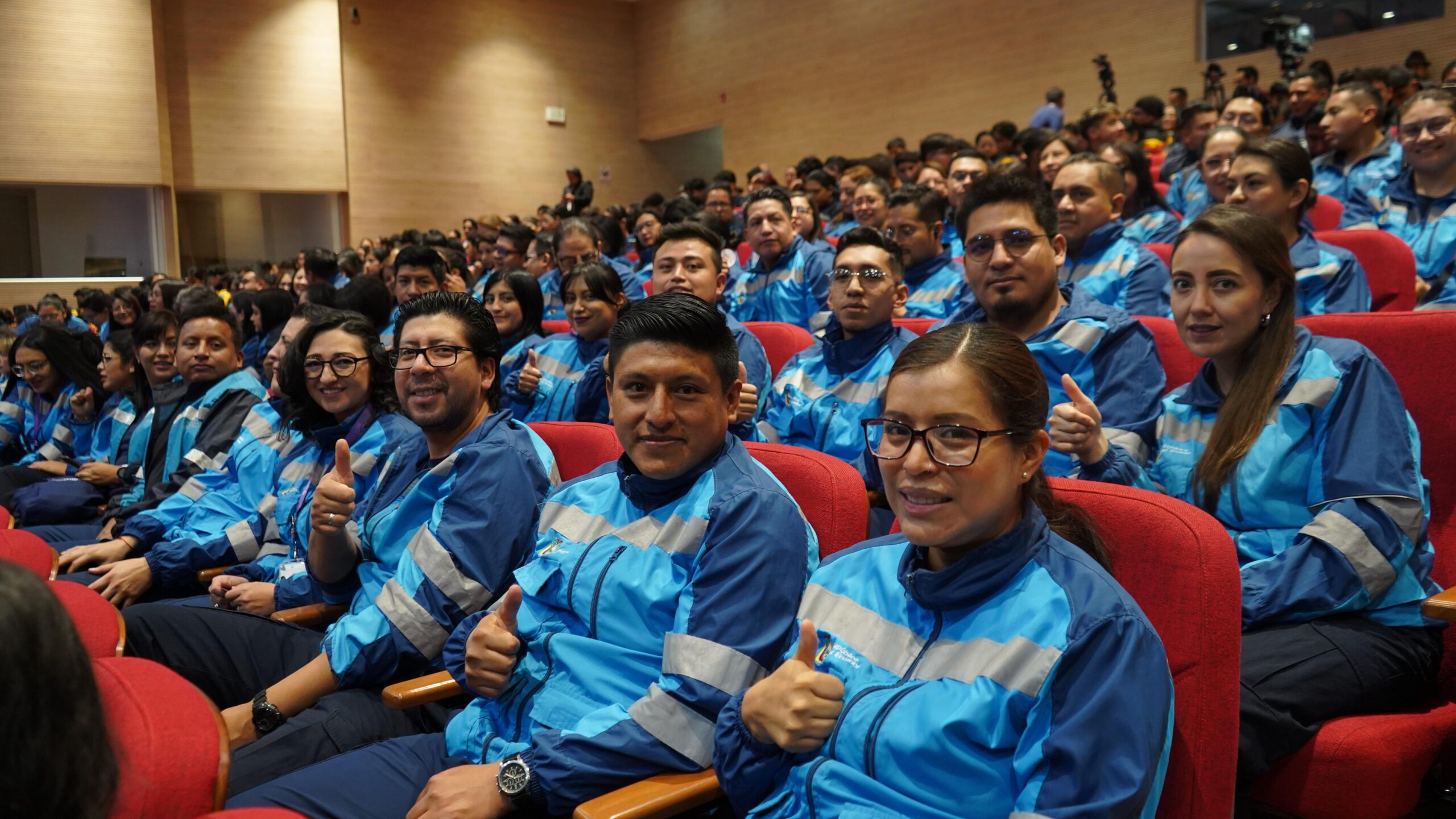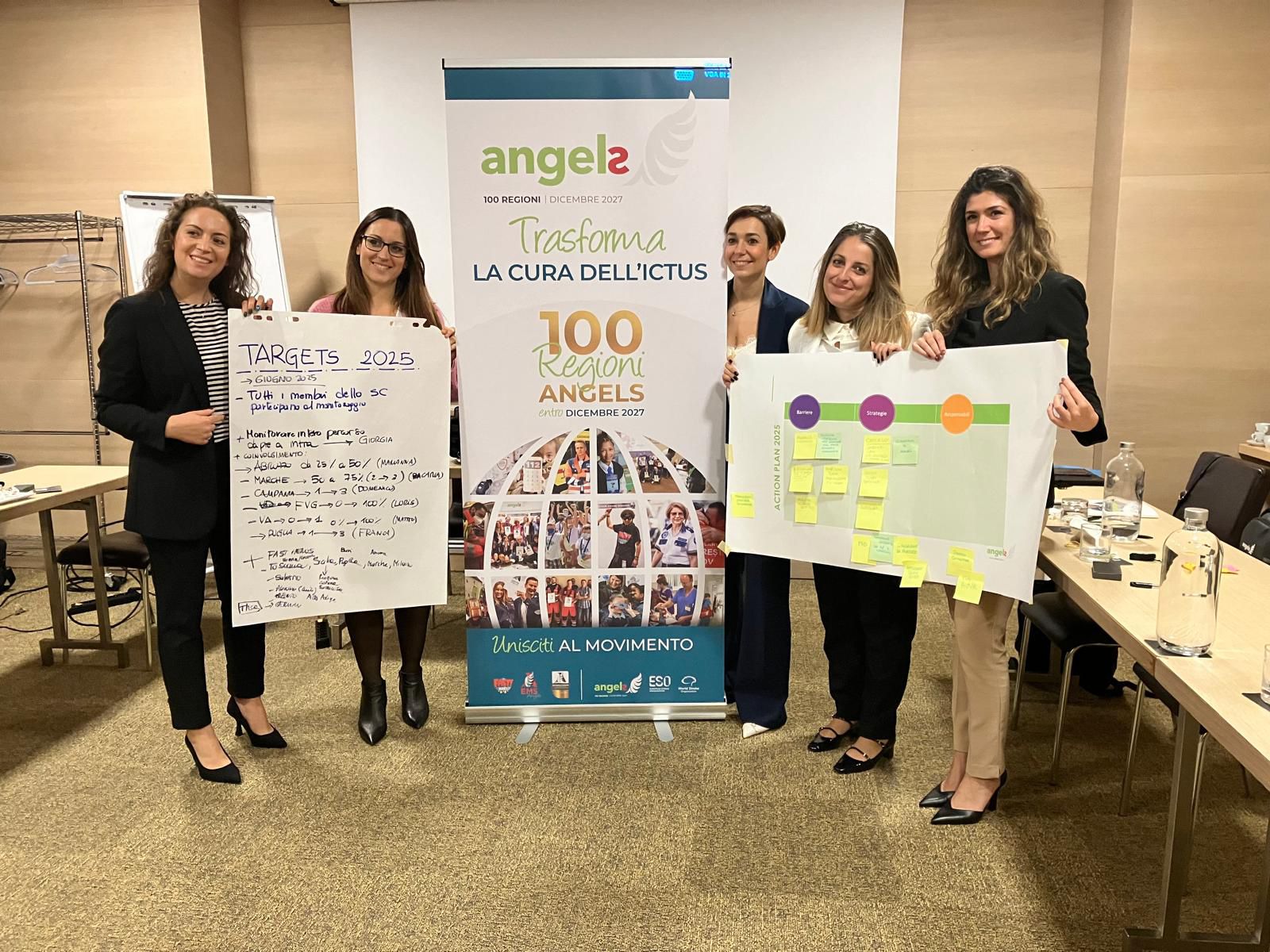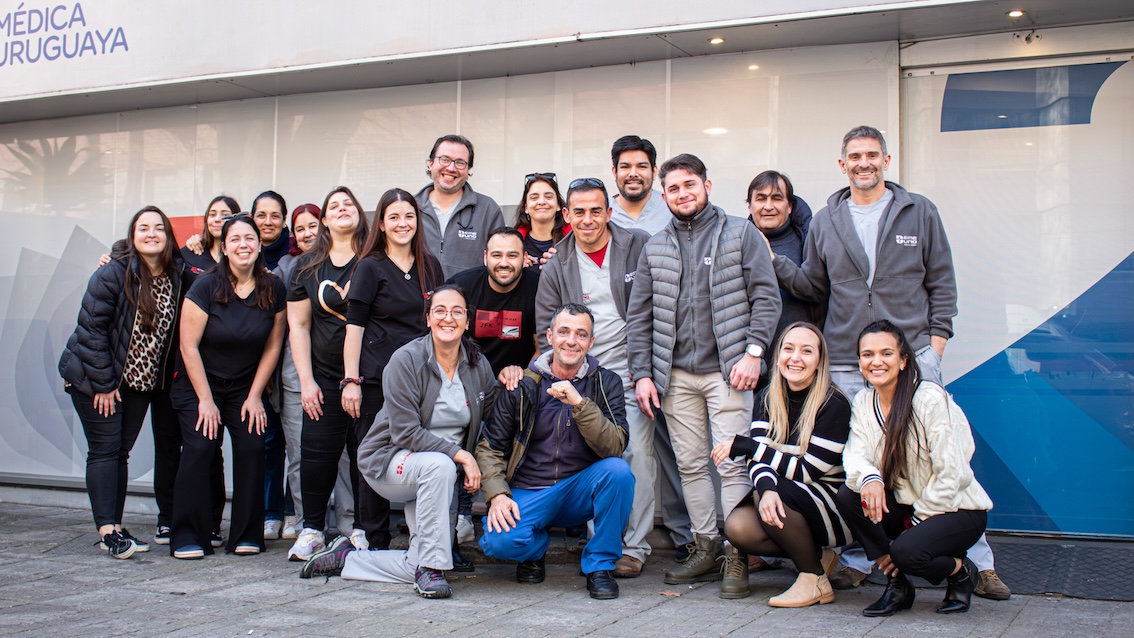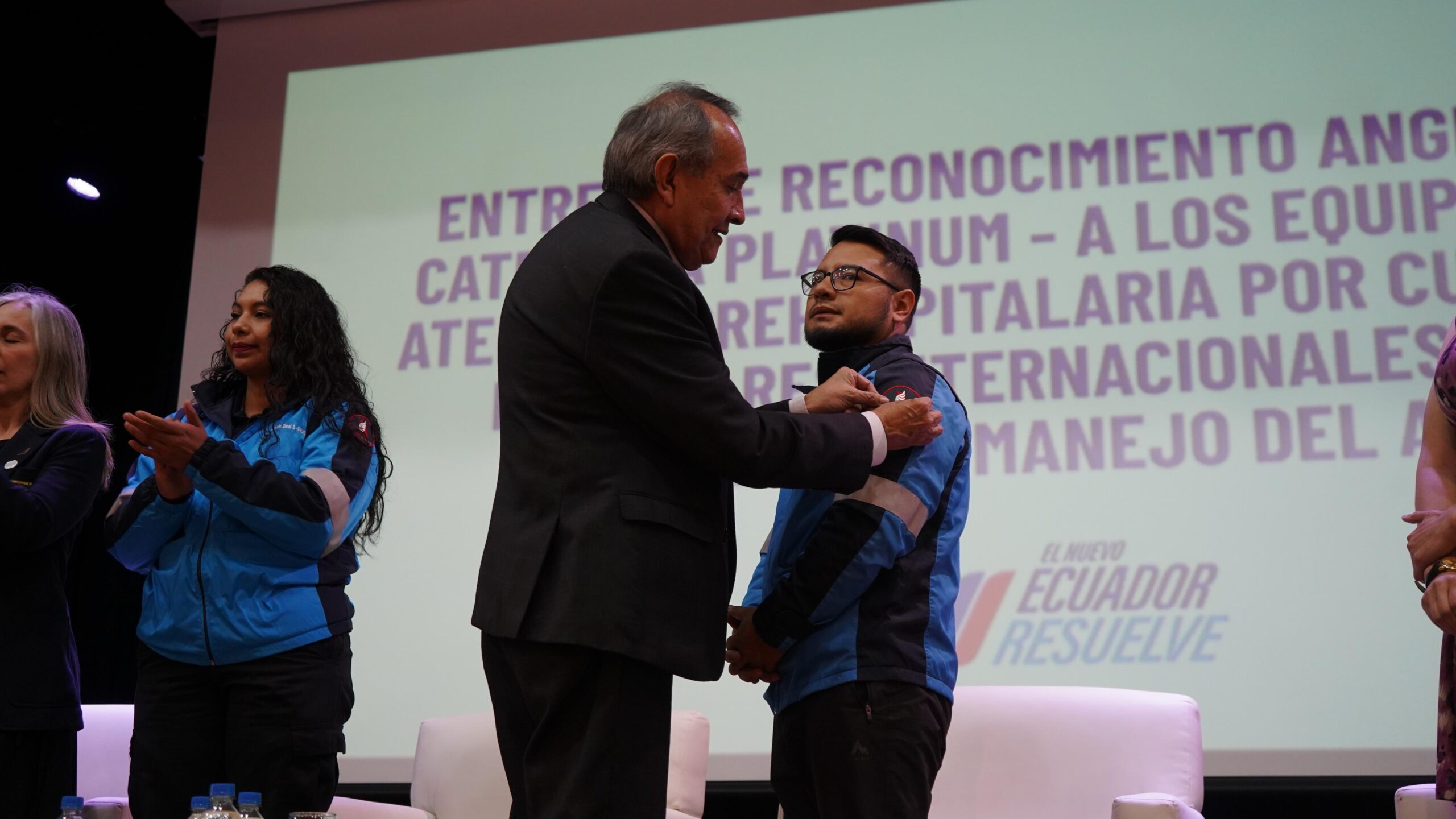
Potreste notare qualcosa di diverso sui paramedici che lavorano nelle zone di coordinamento preospedaliere 2 e 9 nella provincia di Pincha. Uno è che indossano un’aria inconfutabile di orgoglio. Il secondo è il motivo per cui tengono le teste così alte: i badge Angels sulle maniche sinistre li contrassegnano come vincitori del primo Angels EMS Awards per l'eccellenza nella assistenza pre-ospedaliera per l’ictus.
La presentazione di questi distintivi al personale operativo è stata un punto saliente della cerimonia di riconoscimenti a Quito, afferma la Dott.ssa Verónica Pacheco, medico dell'emergenza di emergenza e specialista della Direzione Nazionale dei Servizi assistenza sanitaria Mobile del Ministero della Sanità Pubblica dell'Ecuador.
"Questa presa d'atto è di grande importanza, dal momento che il lavoro svolto dai servizi di assistenza pre-ospedaliera di solito non è riconosciuto.Avere questi distintivi aggiudicati dal Ministro della Sanità Pubblica, il Dott. Antonio Naranjo Paz y Miño, ha accresciuto l'impatto positivo. È stato un momento significativo ed emotivo che motiverà gli altri team del Paese a impegnarsi verso questo riconoscimenti."
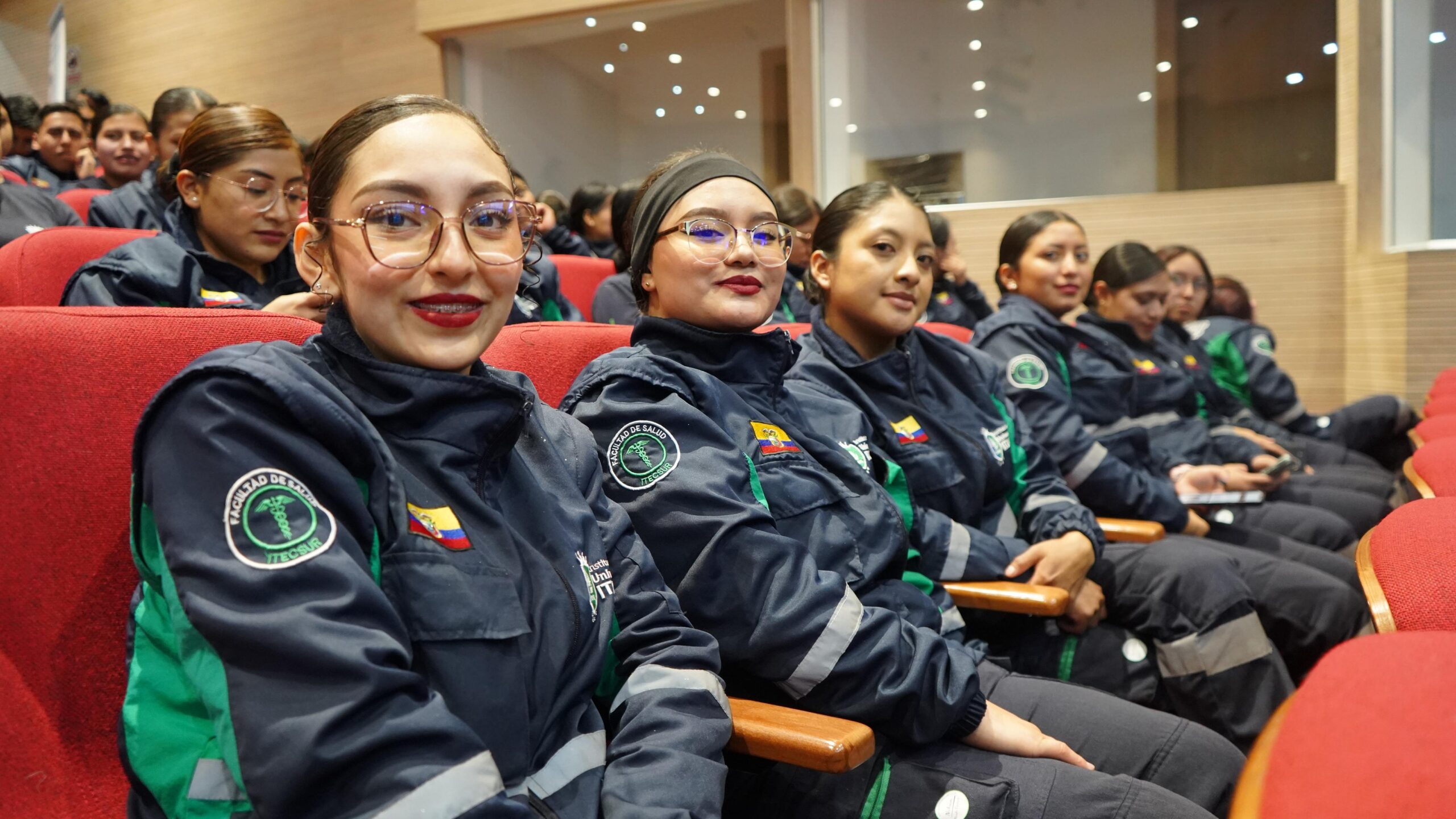
La dott.ssa Pacheco non ha avuto una piccola parte in questo traguardo. Ha guidato lo sviluppo del primo protocollo nazionale per la assistenza pre-ospedaliera per l’ictus in America Latina, formulando linee guida attualmente in corso di implementazione in tutto il Paese.
In qualità di custode di un accordo tra l’Iniziativa Angels e il Ministero della salute pubblica, la dott.ssa Pacheco svolge un ruolo chiave nel facilitare la formazione degli operatori sanità nella corretta gestione dell’ictus, comprese le simulazioni condotte in ospedali pubblici. Il risultato di questi sforzi è l’espansione sia della copertura assistenza pre-ospedaliera per l’ictus sia della rete di centri accreditati per l’ictus, con ospedali a Tena, Macas e Latacunga a breve dovuti per la certificazione insieme al General Hospital Enrique Garcés di Quito.
Le lunghe distanze che separano città e piccole città dagli ospedali attrezzati per l’ictus pongono forti richieste ai servizi di trasporto medico di emergenza, rendendo prioritaria la sostituzione delle unità di ambulanza, afferma la dott.ssa Pacheco. Attualmente, 158 ambulanze di supporto vitale avanzato vengono consegnate in sedi strategiche per fornire una copertura adeguata ai pazienti che necessitano di cure urgenti, incluso per lictus.
La creazione del protocollo per la assistenza pre-ospedaliera per l’ictus e la sua implementazione sia nel settore pubblico che in quello privato è stata un primo passo vitale. Il protocollo è stato modellato da un processo di incontri con il personale operativo e consultazioni con i medici di emergenza, afferma la Dott.ssa Pacheco. Uno dei loro obiettivi era la standardizzazione dell'uso delle scale nella valutazione preospedaliera; alla fine hanno optato per tre scale adattabili alla realtà attuale del sistema sanitario.
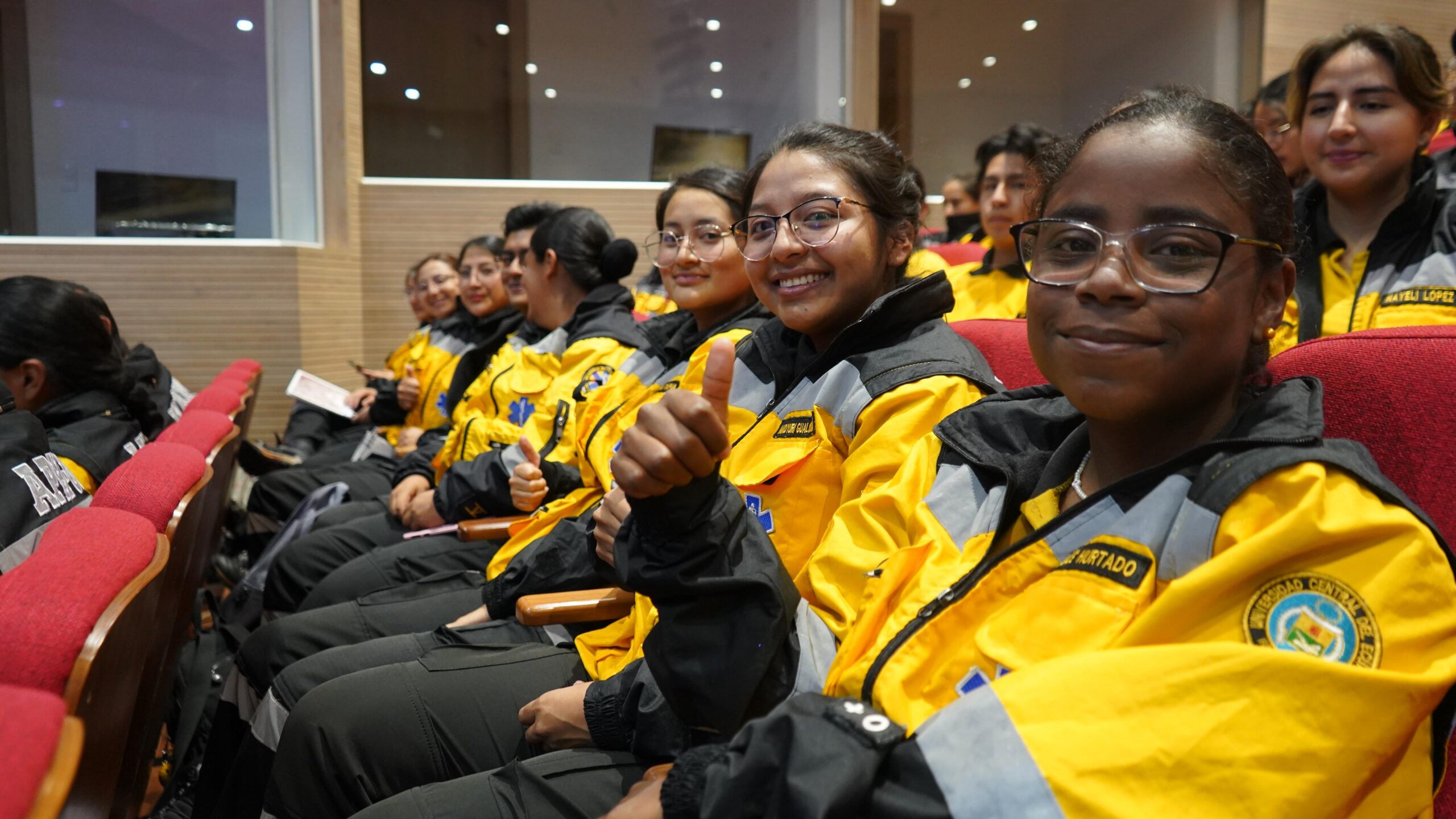
Un’altra priorità è la formazione di persona, spesso effettuata da medici coinvolti nella stesura delle linee guida. L’impatto di questo approccio personale alla formazione è simile a quello dei premi vincenti, suggerisce la dott.ssa Pacheco. In entrambi i casi incoraggia il personale dell’ambulanza infondendo un senso di appartenenza e la consapevolezza che siano una parte molto importante di qualsiasi team di la cura dell'ictus.
I team di assistenza pre-ospedaliera nella Zona 2 e nella Zona 9 hanno iniziato il loro percorso di premiazione nel maggio del 2024. A giugno, una revisione dei loro dati ha dimostrato di non essere al passo con il punteggio in due delle aree coperte dai criteri di assegnazione. La dott.ssa Pacheco spiega: "Poiché in Ecuador abbiamo bisogno dell'accettazione dell'ospedale prima che un paziente possa essere trasportato in ospedale, i nostri tempi in aula hanno superato quelli stabiliti nei parametri di qualità. Anche il nostro personale preospedaliero non registrava i farmaci per il paziente, informazioni fondamentali per la decisione di trattare l'ictus."
Tra le misure per affrontare queste carenze vi è stata l'implementazione di Código Rojo (codice rosso), che elimina la necessità di un'accettazione preventiva da parte degli ospedali per i pazienti colpiti da ictus. Al contrario, gli ospedali sono stati preavvisiati che un paziente con ictus è in viaggio.
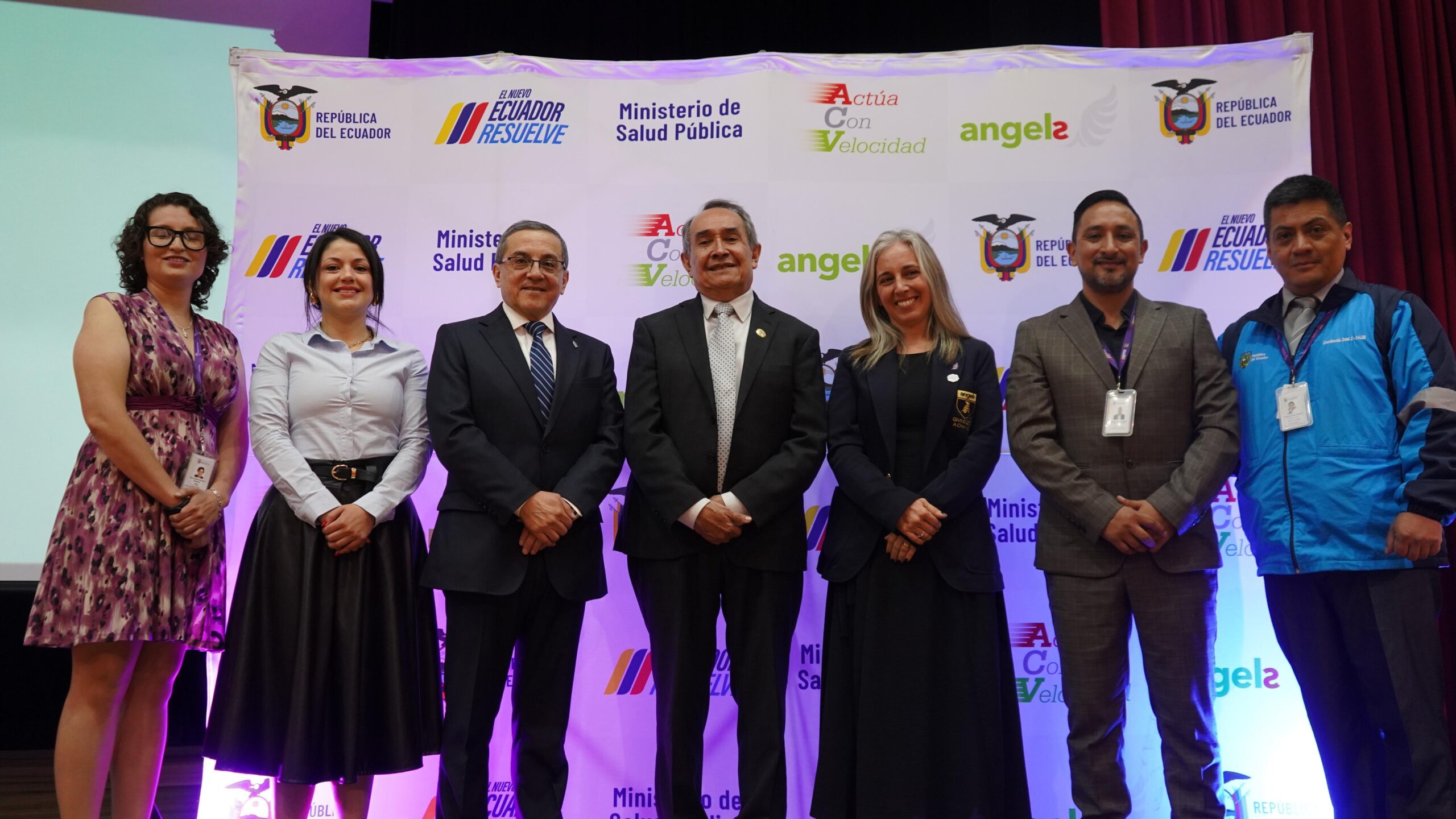
Migliorare lo standard di assistenza pre-ospedaliera completa il cerchio delle cure di qualità per i pazienti colpiti da ictus, afferma la Dott.ssa Pacheco. "È importante che i team di ospedali e ambulanza abbiano buone relazioni, parlino la stessa lingua e lavorino insieme per ottimizzare i tempi e salvare quante più vite possibili nel nostro Paese."
La medicina è ereditaria. Anche suo padre e due fratelli sono medici e la loro mamma è uninfermiere, quindi l’impulso di aiutare le persone fa parte del suo DNA. Ma è stato salvare vite che ha portato la dott.ssa Pacheco alla medicina d’emergenza, afferma.
"È davvero la mia passione essere lì nel momento in cui le persone hanno bisogno di me, nel momento in cui arriva qualcuno che ha bisogno di cure di emergenza, e avere l'opportunità di fornire aiuto e salvare una vita. Soprattutto essere lì in quel momento così difficile per tutte le persone e fornire assistenza con calma."
Ama la medicina d’emergenza, dice la dott.ssa Pacheco. "Non cambierei la mia specializzazione per nulla. È stato un fattore molto importante nella mia vita. Mi ha permesso di essere presente in molti momenti difficili per alcune persone, di salvare vite e di restituire a qualcuno la loro famiglia o la loro qualità della vita. Questo è stato fondamentale nella mia vita."
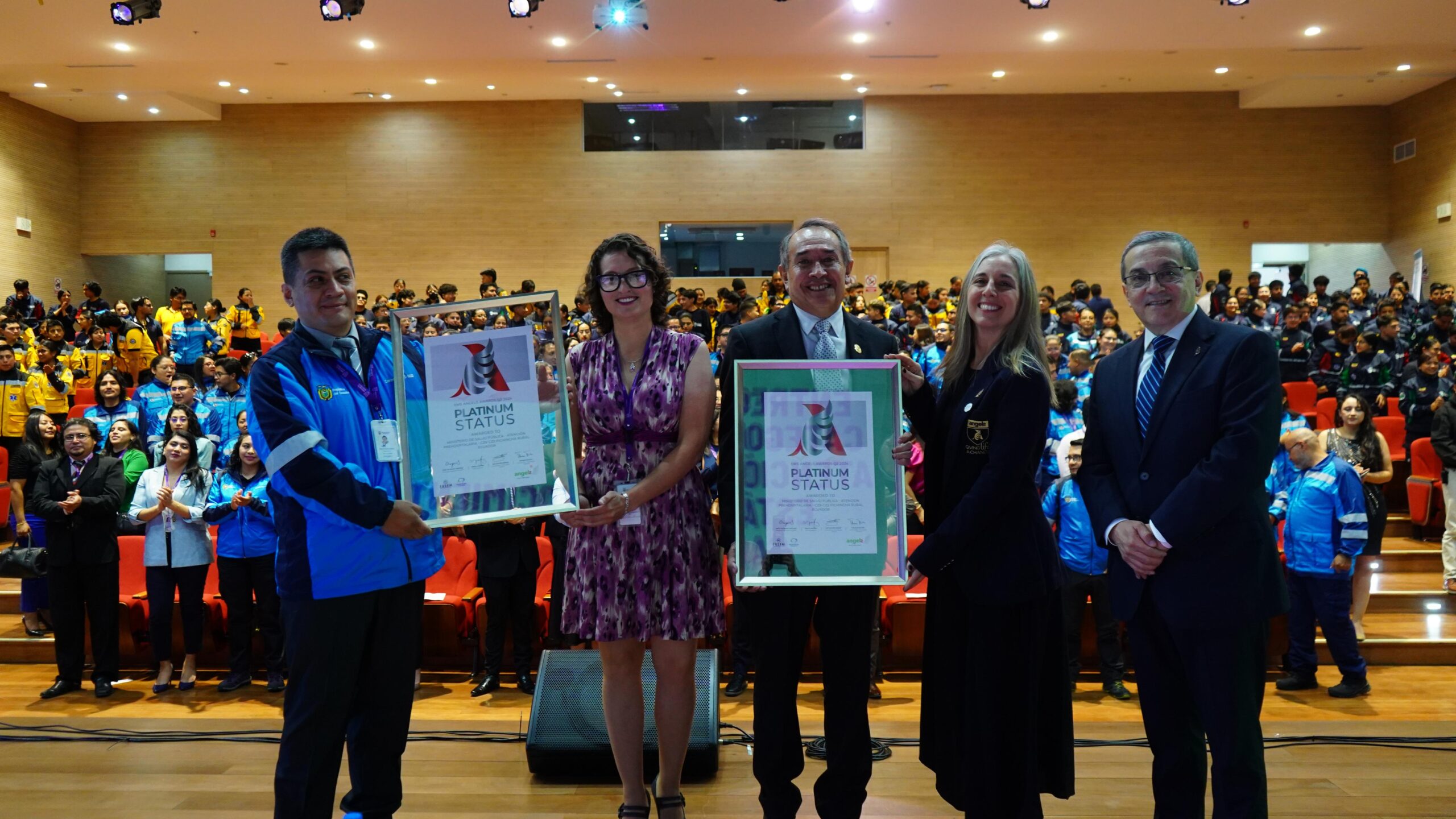
Anche la qualità della la cura dell'ictus salva vite e il lancio dell’implementazione del protocollo per l’ictus in tutto il settore preospedaliero offre alla Dott.ssa Pacheco e al suo team un’ampia piattaforma per fare ciò che ama. Pincha è solo il punto di partenza, dice. "Abbiamo iniziato a lavorare in quest'area perché è qui che si trova la capitale e la più grande concentrazione di persone che hanno bisogno di assistenza. Sapevamo che se vincessimo questo riconoscimenti avremmo potuto utilizzare ciò che abbiamo imparato a sviluppare strategie per i team preospedalieri più piccoli o per quelli che lavorano in aree meno popolate. Sappiamo che dobbiamo adattare e modificare il nostro approccio per avere successo in tutte le regioni o le province di Ecuador, e lo stiamo raggiungendo.
"Credo che entro pochi mesi ci sarà un altro team preospedaliero in piedi su una fase da riconoscere per la qualità della cura dell'ictus."
Sarai in grado di distinguerli con l'aletta bianca sulla manica sinistra.
